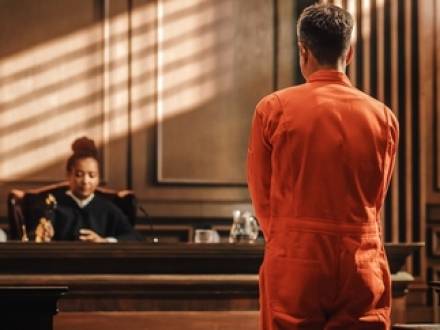Can a Texas Parole Decision Be Reversed?
 If a parolee is suddenly notified that their parole decision has been reversed, it can be a crushing blow to that individual as well as to his or her loved ones. Parole allows those convicted of a crime to serve only a part of their prison sentence. The remainder of the sentence will be spent under court-ordered supervision. The goal is to reintegrate those who have served prison time into the community while they remain under monitored supervision.
If a parolee is suddenly notified that their parole decision has been reversed, it can be a crushing blow to that individual as well as to his or her loved ones. Parole allows those convicted of a crime to serve only a part of their prison sentence. The remainder of the sentence will be spent under court-ordered supervision. The goal is to reintegrate those who have served prison time into the community while they remain under monitored supervision.
Parole is often granted to those serving time for less serious criminal offenses. Assuming the offender has exhibited good behavior while in the facility, observed all rules, and served a portion of their prison term sentence, the individual may be eligible for parole. The granting of parole may not endanger the public.
If a parolee is notified of a parole rescission or revocation, an experienced Dallas criminal defense attorney from Pullan & Young should be contacted. Your attorney will have extensive experience regarding Texas parole issues. This is not a time to hesitate. The sooner a strong legal advocate can sort out the details of parole reversal, the better the outcome will likely be.
Rescission, Revocation, or Reversal?
Rescission of parole is often called revocation, and while both are essentially reversals, they refer to different actions. Rescission of parole is typically done when an error was made when granting parole and the individual was not supposed to be granted parole. Parole authorities may reopen a parole decision when the board realizes a mistake was made or when new information has become available.
Revocation is the term used when the parolee has violated the conditions of their parole. Perhaps the parolee committed an illegal act or engaged in illegal conduct. Revocation of parole usually occurs once the parolee is already out of prison. Since removing parole that has been granted can have a major impact on the parolee, there must be more than a suspicion that the parolee has broken a rule.
What is a Blue Warrant?
Across Texas, a warrant sent out to revoke parole is known as a "blue warrant." Parolees are usually not notified that a blue warrant has been issued, only finding out when they are arrested and incarcerated. Under limited circumstances, a summons may be issued that allows the individual to avoid an arrest, remaining free until the revocation hearing is held and a final disposition determined.
When a blue warrant results in an arrest, the parolee may be asked to waive his or her right to a revocation hearing. It is essential that the parolee has an attorney who can determine whether this is the best course of action. Once that waiver is signed, the parolee loses the chance to have their side of the story heard and considered.
The 1972 case of Morrissey v. Brewer resulted in the U.S. Supreme Court recognizing that the freedom of parolees is protected under the 14th Amendment. Because of this, a person facing a parole revocation hearing is entitled to written notice of the alleged violation, disclosure of all evidence, the right to speak on their behalf, and to bring in witnesses. The parolee also has the right to be legally represented. When parole is revoked, the parolee could face serious jail time.
Do I Need an Attorney for My Revocation of Parole Hearing?
If a parolee chooses to contest a parole revocation, their attorney will argue their case at a contested revocation hearing. During this hearing, the allegations of parole violations will be challenged or denied. The prosecution must clearly and convincingly prove that the person violated the terms of probation. If the violation is proven, the judge will hand down sanctions or a criminal sentence.
Anyone who believes their parole has been wrongfully modified, rescinded, or revoked, should consult with an experienced criminal lawyer as quickly as possible. The lawyer will have full knowledge of the Texas statutes governing parole across the state so can recommend the best course of action for the parolee.
Contact a Houston, TX Criminal Defense Attorney
An attorney from Pullan & Young understands the daunting nature of the parole revocation process. The loss of freedom is a strong possibility, as well as the loss of good time parole credits earned in prison and possibly the loss of time spent on parole (street time). Having a skilled Austin, TX criminal defense attorney means you have someone working hard on your behalf. Call Pullan & Young today at 936-647-1540 to set up your free consultation.







